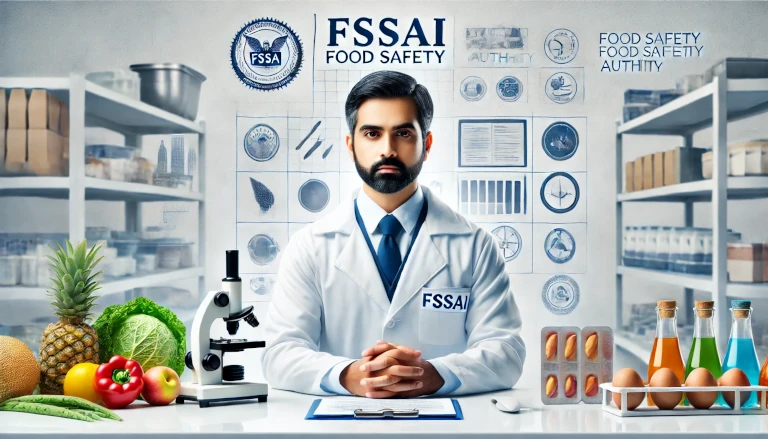The Food Safety and Standards Authority of India (FSSAI) plays a crucial role in ensuring the safety and quality of food products across India. FSSAI establishes standards to regulate food production, distribution, and sale, thus protecting consumer health and promoting public trust in food safety. This article covers the why, how, what, where, when, and benefits of FSSAI, as well as its health implications, responsibilities, certification process, and challenges faced by the authority.
What is FSSAI? 🏢🍽️
The FSSAI is an autonomous body under the Ministry of Health and Family Welfare, established to regulate and monitor food safety standards in India. It was formed under the Food Safety and Standards Act, 2006, to safeguard public health by overseeing the food industry’s compliance with food safety guidelines. The FSSAI sets regulations to prevent food adulteration, contamination, and ensure that food products meet stringent health standards.
Why is FSSAI Important? 🌍💡
FSSAI’s mission is to ensure that food products consumed by the public are safe, clean, and nutritious. By setting strict food safety standards, FSSAI reduces the risk of foodborne illnesses, boosts public health, and instills consumer confidence. It also helps maintain the quality of food products, which is essential in a rapidly growing market where food adulteration can be a major issue.
Responsibilities of FSSAI 📝
The FSSAI has several key responsibilities:
- Setting Standards: Developing guidelines for the production, packaging, and sale of food products.
- Licensing and Registration: Ensuring that food businesses meet the necessary safety requirements before they operate.
- Food Testing and Analysis: Conducting regular checks and tests on food products to verify their safety and compliance.
- Promoting Awareness: Educating the public on safe food practices and promoting healthy food habits.
- Inspection and Surveillance: Regular inspections to monitor compliance with food safety norms.
How Does FSSAI Certification Work? 📜
FSSAI certification is mandatory for all food businesses in India, including restaurants, retailers, manufacturers, and suppliers. Here’s how the process typically works:
- Apply Online: Businesses apply through the FSSAI’s online portal and choose the type of license required based on their business scale.
- Submit Required Documents: Necessary documents include business licenses, proof of identity, and location information.
- Inspection and Verification: FSSAI inspectors visit the facility to verify hygiene and safety practices.
- Issuance of License: After successful verification, the FSSAI issues a license, which is valid for 1-5 years based on the business type.
Where Does FSSAI Operate? 🌏
FSSAI’s reach extends across India, with regional offices, labs, and local inspectors spread throughout the country. Through these facilities, FSSAI ensures that food safety standards are upheld from rural to urban regions, monitoring businesses of all scales.
When is FSSAI Certification Required? 📆
FSSAI certification is mandatory before a business can legally operate in the food sector. This includes all stages of food production, from manufacturing and processing to packaging, storage, and distribution. Renewal of certification is also required every 1-5 years, depending on the license type, to ensure ongoing compliance.
Health Implications of FSSAI Regulations 🩺
By setting and enforcing high food safety standards, FSSAI minimizes the risks of foodborne diseases and long-term health issues associated with contaminated or adulterated food. The authority’s emphasis on cleanliness, safe additives, and quality control directly impacts the well-being of consumers and encourages healthier eating habits across the nation.
Benefits of FSSAI Certification 🥇
- Consumer Trust: Builds confidence in consumers that food products are safe and high-quality.
- Market Access: Allows businesses to sell across India and even export, as FSSAI certification is respected internationally.
- Improved Business Standards: Certified businesses follow better hygiene and safety practices, which often lead to improved customer satisfaction.
- Legal Security: Certified businesses comply with laws, reducing the risk of fines or closures due to regulatory issues.
Financial Requirements for FSSAI Certification 💵
The cost of obtaining an FSSAI license depends on the size and type of the business. Small businesses may pay as low as ₹100 annually, while larger manufacturers or multi-location businesses may pay up to ₹7,500 per year. In addition to the license fee, costs for setting up compliant infrastructure and hygiene facilities can vary widely.
Challenges and Limitations of FSSAI 🚧
- Enforcement in Remote Areas: Implementing FSSAI standards in rural or remote locations can be challenging due to limited resources.
- Counterfeit Licenses: The presence of fake FSSAI licenses undermines the authority’s efforts to ensure food safety.
- Awareness: Some small-scale businesses lack awareness about the importance of certification, leading to non-compliance.
- Regulatory Flexibility: Adjusting regulations for small vs. large businesses is complex, and achieving consistency can be a challenge.
How Much Does FSSAI Certification Cost? 💰
The certification cost varies:
- Basic License: For small businesses, ₹100-₹500 annually.
- State License: For medium-sized businesses, ₹2,000-₹5,000 annually.
- Central License: For large businesses or multi-location businesses, ₹7,500 annually.
Additionally, businesses may incur expenses for facility improvements and meeting hygiene standards.
FSSAI’s Impact on Public Health and Food Quality 🌟
FSSAI plays a pivotal role in ensuring food safety, quality, and health for millions of consumers across India. By enforcing strict guidelines, conducting inspections, and promoting safe food practices, FSSAI helps build a healthier society. From restaurants to packaged food manufacturers, FSSAI certification signifies a commitment to quality and safety, benefitting both businesses and consumers. Although there are challenges, FSSAI’s contribution to public health is invaluable, making it an essential part of India’s food industry.
FSSAI ensures safe and nutritious food for all by regulating the food industry, protecting consumers, and promoting public health through strict standards and awareness.
Discover more from Green Ecosystem - Renewable Energy, Agriculture, and Environmental Sustainability
Subscribe to get the latest posts sent to your email.


